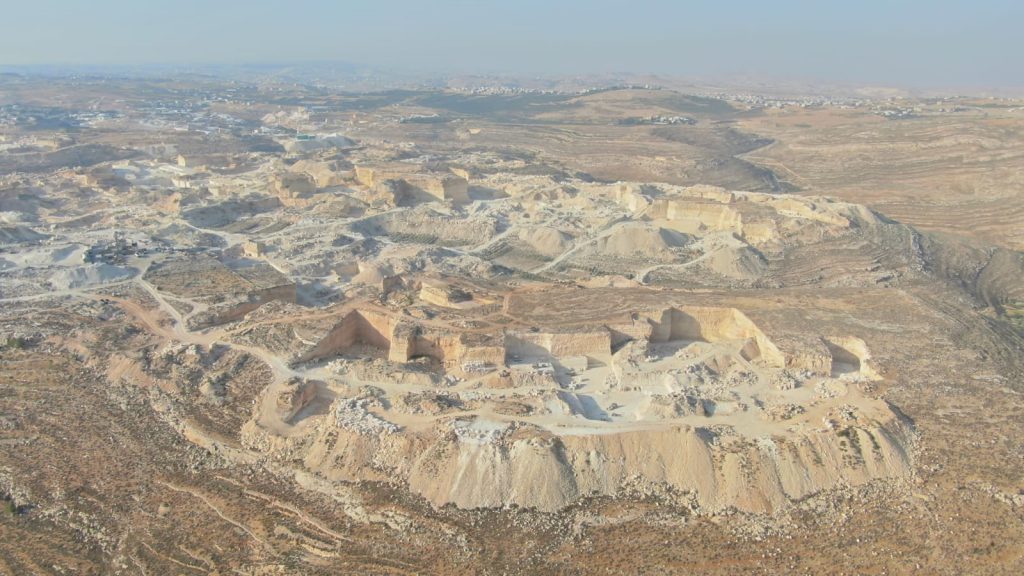
The Regavim Movement recently petitioned the Jerusalem District Court against the continued operation of the Beit Fajar quarry in eastern Gush Etzion. The quarry currently spans some 1,500 dunams (1.5 km2) – hundreds of dunams of which are registered state land – and continues to cause irreversible ecological and environmental damage.
Approximately one third of the Beit Fajar quarry is situated on land under Palestinian Authority jurisdiction, which explains why the State of Israel has refrained from enforcing environmental protection regulations there. However, the majority of the quarry is located on land under full Israeli jurisdiction – and hundreds of dunams are registered as state property. Yet there, too, the quarrying carries on, unhindered and unregulated.
Regavim’s attorneys, Avi Segal and Yael Cinnamon, described the gaping “wound” created by the quarry and the irreparable destruction of the landscape, as well as the massive disruption of the delicate ecosystem that has caused irreversible environmental damage, including destruction of wildlife habitats and breeding grounds for unique species of flora and fauna that have developed and thrived in this area over thousands of years.
Regavim first petitioned Israel’s High Court against the quarry a decade ago, when the quarry, and the damage, were still relatively small. Responding to this petition, the government informed the High Court that it had carried out a number of enforcement steps, and was working on a zoning plan for the area that would establish land-use directives for quarrying at the site.
On the basis of the government’s statements and commitments, the High Court rejected Regavim’s petition at that time. Then-Chief Justice Dorit Beinish, who presided over the case, stressed in her judgement that “we are assuming that the enforcement and regulatory actions taken by the respondents will continue, and that the policy that has been formulated will be enforced without interruption.”
Unfortunately, a decade has passed, and not only have the Israeli authorities failed to take any steps to prevent the continued operation of the quarry, they have allowed it to expand by 33%, deepening the invasion of state land by more than 200 dunams beyond its boundaries ten years ago.When repeated inquiries and correspondence on the matter were ignored, Regavim went back to court, filing a petition against Minister of Defense Beni Gantz, Minister of the Environment Gila Gamliel, the IDF Commander of Central Command, the Civil Administration and the Israel Police.
“The environmental damage caused to this area by the inaction of the authorities responsible for law enforcement is staggering, and, sadly, irreparable,” said Regavim’s spokesperson. “The State of Israel has strict regulations for quarrying permits, and owners and operators are required to finance the rehabilitation of quarried areas when they become inoperative in order to minimize the environmental impact – but this policy vanishes when the imaginary line into Judea and Samaria is crossed. Adding insult to injury, when micro-measures are taken to rehabilitate illegal quarries in these areas, they are paid for by Israeli taxpayers, and the criminals who cause the damage simply carry on, rapaciously exploiting the natural resources of the Land of Israel as they scoff at the law and pocket vast profits, without any responsibility for the destruction they leave in their wake.”
This article appeared on JNS Wire








